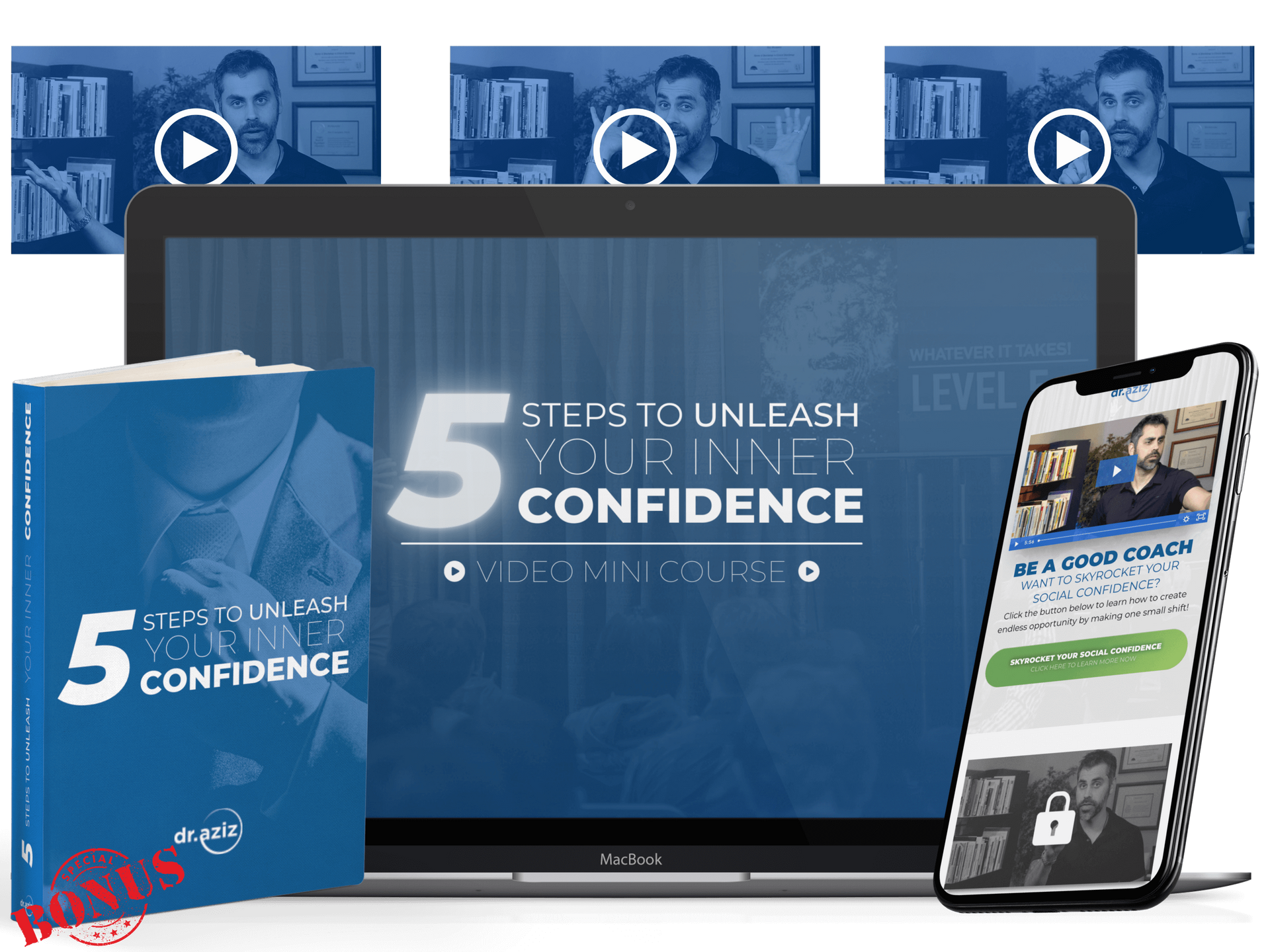What If You Were Born Shy?
Apr 10, 2022Have you always been a little more hesitant than everyone else around you?
Even as a little kid, did you always have trouble connecting to people?
Do you feel as though you simply came into the world less willing than others to put yourself out there and go after what you want?
Were you born shy?
Many people I’ve met over the years who suffer from social anxiety feel as though that condition is simply ingrained in their DNA—that the shy person they present to the world is who they truly are inside.
Firstly, let me say that I can totally relate to that way of thinking. After all, I was extremely shy and introverted as a kid, myself, and for the entirety of my early life, I bought into the idea that this was an inborn trait that I could not change . . . but I was wrong!
Yes, we all come out a little different—with various sizes, shapes, colors, personalities, and dispositions—but we all have the same ability to use that information to adjust how we navigate the outside world.
What you need to remember going into this is that social anxiety is a mental pattern that we DO have the ability to shift. For some of us, though, it’s more difficult to free ourselves of that habitual thought and step into a routine involving more confidence.
And why is that?
Sensitivity.
Like I said above, we all come out differently . . . and what I’ve noticed in people with social anxiety is that they tend to be born, in at least some small way, with a greater level of sensitivity to the world around them.
We’ve all seen it: some kids just come into the world more sensitive to light, sound, color, or touch; some are naturally more sensitive to emotions or the movements of other people; some are far more affected by the energy of the people around them.
For some of these children, that sensitivity translates into a lifetime of overstimulation and adulthood filled with uneasiness in their surroundings.
But this is not the problem! On the contrary, increased sensitivity is akin to having a superpower, and should be viewed as nothing less.
The problem truly arises when an acute sensitivity is not met with the tools necessary to facilitate navigating the real world with extrasensory abilities.
Let’s take, for example, a child who has a sensitivity to sound. His reaction to loud noises (something as innocuous as a toilet flushing) might be to cry or even run away. Fast-forward 30 years and this person never goes out to parties or social gatherings because he or she has learned to associate loudness with fear.
What about a child with a sensitivity to emotion?
This child might steer clear of relatives who are aggressive in their behavior, but Mom and Dad pressure him to give those relatives hugs and kisses at every gathering. Pressure aside, the child is still stressed out about it and just can’t get through these interactions comfortably. By the time the child reaches middle school, he’s learned to see his reaction to aggressive people as wrong, and he’s created stories about himself saying that he doesn’t fit in, or that he doesn’t know how to express himself, or that he’s just damaged in some way.
But that isn’t the reality—it’s just a story that we’ve built up in our minds about the kind of person we have always been.
Now, what if the parents had taught those children how to navigate the world differently, bearing those sensitivities in mind? What if, instead of inadvertently teaching those children to bury their fears, they’d been taught to recognize them and face them head-on?
Side note: this is NOT me attacking anyone’s parents, here! Parenthood is tricky to work through, at best, and there are always at least ten factors at play in any given moment (including not wanting to insult Great Aunt Mildred with the refusal of one of her famously rib-disintegrating hugs). What is important to take away from this discussion is that the mental pattern CAN be unlearned—and that is our goal!
As children, we may not have had the guidance we needed through those struggles, but as adults, we can take responsibility for ourselves and make the changes that we need to make to get what we want out of life.
To that end, the first thing we need to do with our sensitivities is to acknowledge them! We can’t just continue to hide from them, run away, and bury our fears under layers and layers of stories that have never served us.
At the same time, however, we can’t simply barrel forward and ignore our personal experiences as we were taught to do while growing up. What we need to do is to find a path somewhere in the middle.
This is what my programs, masterminds, and live events are all about! If you want to learn to put yourself out there more, speak up for yourself, face rejection and take bold action in the face of your fears, then I highly recommend visiting SocialConfidenceCenter.com to access any of our multiple resources designed specifically to help you break your old habits and form new mental patterns in a supportive and guided environment.
We must acknowledge that part of ourselves that is yearning for comfort, nurturing and nourishment.
We must learn how to be on our own side.
We must develop the skills necessary to make this practice an everyday part of our lives.
Confidence development is all about two things: 1) taking bold action, and 2) taking care of yourself (being on your own side) before, during, and after.
If you can successfully learn to do those two things by making your confidence development a daily practice, then you will begin to see success in multiple areas of your life as your confidence surges indefinitely.
Please feel free to share your thoughts and questions below! What sensitivities do you struggle with in the outside world? How were you taught to handle those sensitivities while growing up (if at all)? What steps can you take today to relieve that pressure and start to see the world in a new light? Let’s continue to share our experiences and learn from each other’s successes!
Until we speak again, may you have the courage to be who you are and to know on a deep level that you’re awesome.
Reading blogs and watching videos online is a start...
When you are ready to radically transform your confidence so you speak up freely, boldly go after what you want, connect easily with others and be 100% unapologetically yourself, coaching is the answer.



